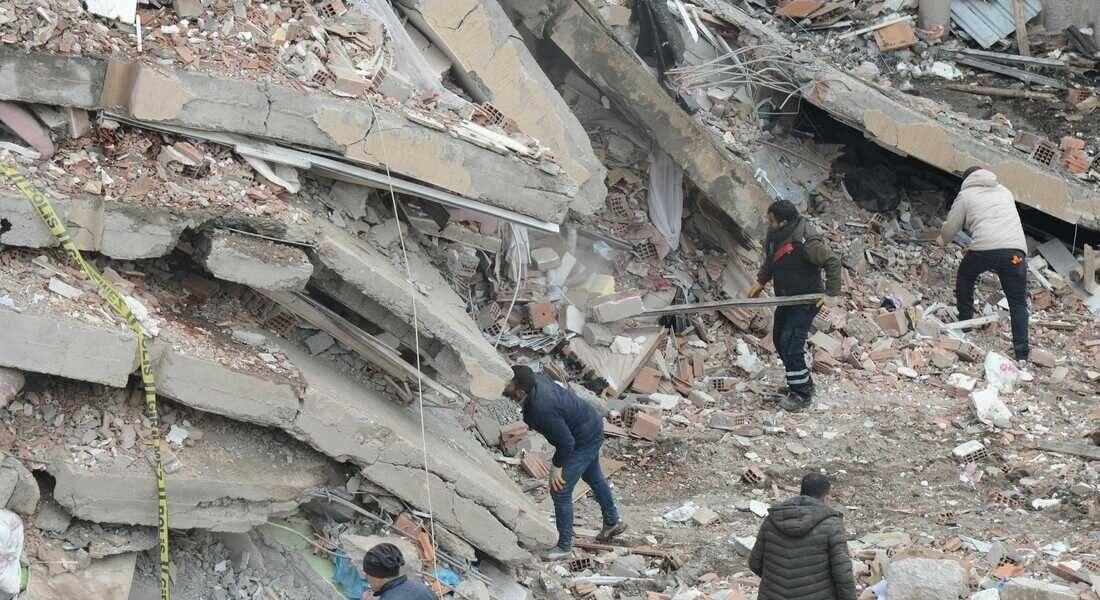The Cypriot rescue team, which was supposed to leave this afternoon for Turkey to help find survivors, is on standby after the 7.8 Richter earthquake struck and devastated the country on Monday.
As the Spokesman of the Ministry of Foreign Affairs Dimitris Dimitriou told KYPE, the Cypriot team is in a "waiting position, ready to move to contribute to the efforts of the rescue crews when needed" .
He added that the Ministry of Foreign Affairs has been informed by the European Civil Protection Mechanism that there are several rescue teams in the area. However, he clarified that this is a situation "which is changing from minute to minute and the facts are changing".
Ankara first refused the offer by the Republic of Cyprus to send a rescue team to help with post-earthquake efforts, according to the Director General of the Cypriot Ministry of Foreign Affairs Kornelios S. Korneliou.
Speaking on the Sigma Mesimeri and Kati Show, Korneliou said on February 7 that as soon as the EU Civil Protection Mechanism was activated, the Republic of Cyprus expressed its readiness to contribute to the mission of the rescue team.
"We got the answer from Turkey, 'Thank you but we won't take it'," he said. "There is the issue of non-recognition and it seems that in matters of natural disasters and human tragedies, the political position often prevails."
However, Demetris Demetriou, spokesperson of the Cyprus Ministry of Foreign Affairs, said on Twitter on Wednesday that the offer from Nicosia has now been accepted by Turkey.
Η Κυπριακή Δημοκρατία 🇨🇾ενημερώθηκε προ ολίγου από τον Ευρωπαικό Μηχανισμό Πολιτικής Προστασίας ότι η η προσφορά της Κύπρου για αποστολή ομάδας διάσωσης έγινε αποδεκτή από την Τουρκία. pic.twitter.com/TgRlijnwrE
— Demetris Demetriou (@demetris_dem) February 8, 2023
It seemingly appears that Turkey has again backtracked on its decision to utilise Cypriot rescue workers.
Cyprus has been divided since Turkey invaded the northern portion of the island in 1974 invasion. Turkey is the only country in the world to not recognise the Republic of Cyprus, an EU member state that is internationally recognised as the sole sovereign authority over the whole island.
Instead, Ankara is attempting to create a global legitimacy for the so-called "Turkish Republic of Northern Cyprus".
Meanwhile, Turkish President Recep Tayyip Erdoğan has said the death toll in his country from Monday’s devastating earthquake has now reached 16, 170, bringing the combined total of fatalities in Turkey and Syria to 19,362.
State officials in Syria said earlier on Thursday the death toll in government-controlled areas stands at 1,262, while 1,930 have been reported dead in rebel-held areas in the north-west of the country by the White Helmets civil defence group.
A total of 5,158 people have been reported injured across both government-controlled and rebel-held Syria. Erdoğan said 64,194 people had been reported injured in Turkey.
Experts have said the toll of both dead and injured is expected to continue to rise sharply in the coming days.
Questions are starting to be raised - albeit anonymously - by supporters of President Recep Tayyip Erdoğan about the feasibility of holding elections in Turkey, which are due on May 14.
Erdoğan, who has ruled Turket with an increasingly iron grip since 2014, faces a tight race and any perception that his government has mishandled the response to the earthquake – as many Turks believe – could dent his chances further.
One official has told Reuters it was too early to make any decision on elections, noting that a three-month state of emergency had been announced and that about 15% of Turkey’s population lived in the areas affected by the earthquake.
“We will look at developments but at the moment there are very serious difficulties in holding an election on 14 May,” the official said.
Turkey’s disaster management agency, AHAD, has recorded almost 650 aftershocks since two earthquakes – 7.8 and 7.6 in magnitude – struck on Monday, making rescue efforts even more difficult and dangerous as emergency teams comb through severely weakened buildings.
Aftershocks are smaller tremors that follow a larger earthquake, as the earth’s displaced crust adjusts after the main shock. They steadily decrease in magnitude and frequency according to a scientifically recognised pattern, but can continue for days or even weeks.
READ MORE: TURKEY EARTHQUAKE: "The Greeks finally came at night, to help us...", write Turkish citizens on social media.


